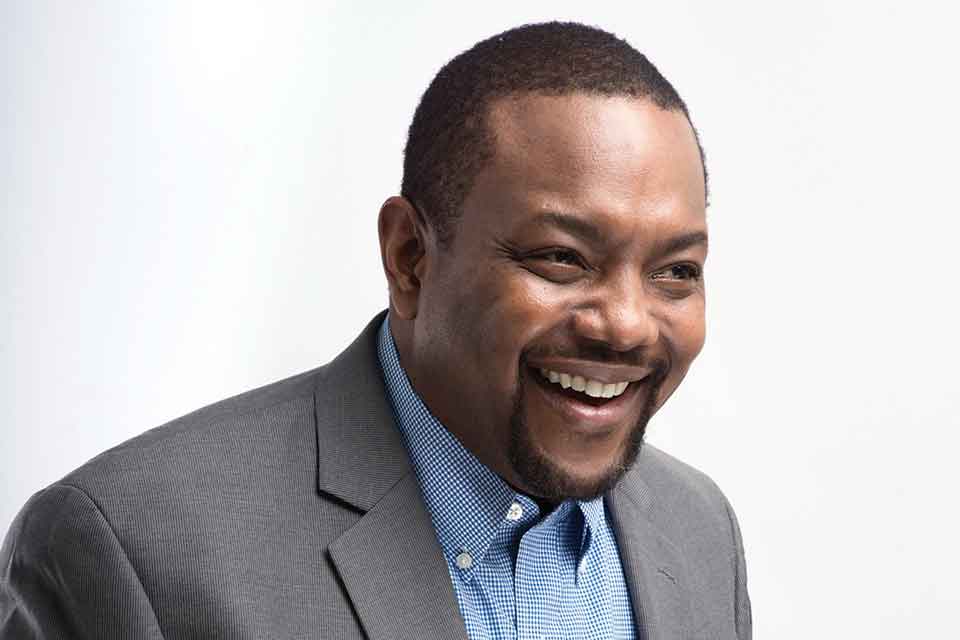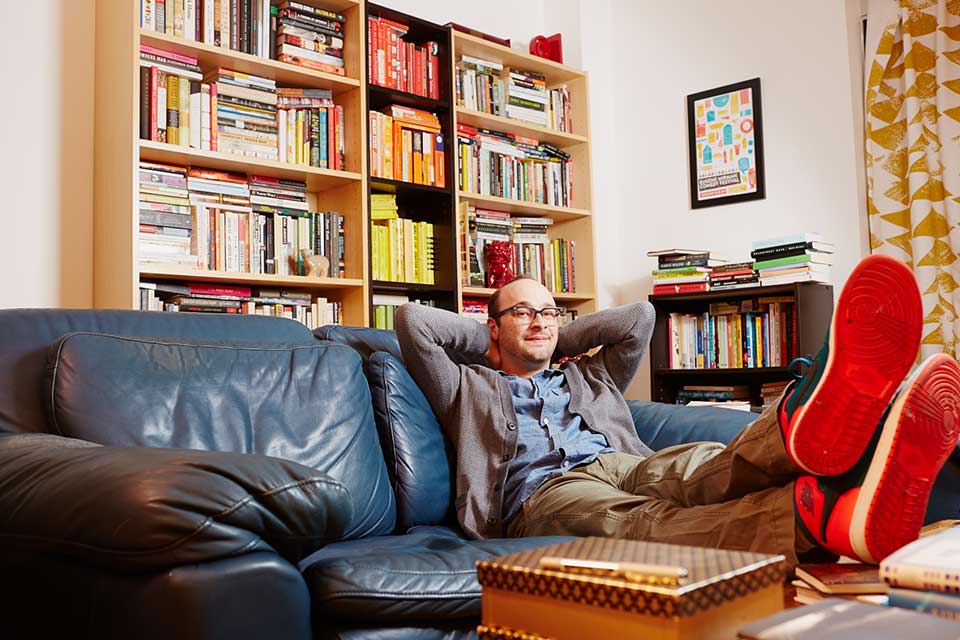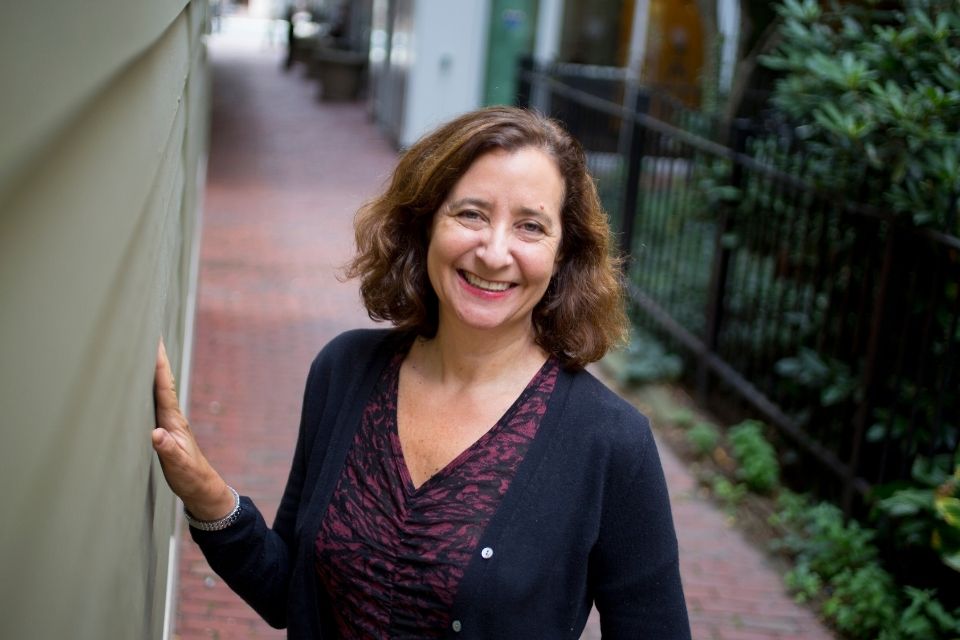Brandeis Alumni, Family and Friends
Jessica Hansen, GSAS MFA’05, Knows the Power of Her Own Voice
Hansen's voice has taken her from NPR’s airwaves to a cameo performance in a best picture nominee.
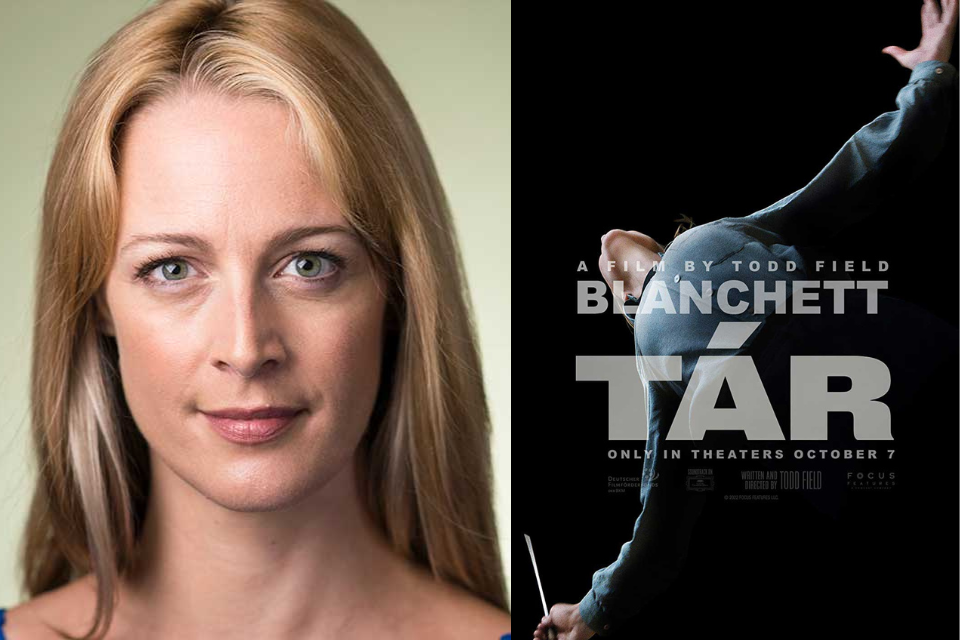
Photo Credit: (Left) Teresa Castracane, (Right) Universal Pictures
If you’ve listened to a good bit of NPR at any point in the last eight years, you’re already familiar with the work of Jessica Hansen, GSAS MFA’05.
She narrates the nonprofit media empire’s funding credits, informing listeners that support for NPR comes from member stations, companies like Progressive, Squarespace, Subaru, Fidelity, and, yes, indeed, listeners like you.
Her voice is so synonymous with public radio, in fact, that, in 2022, Hansen cameoed a spoofed version of herself in the Todd Field-directed, Cate Blanchett-starring, six-time-Academy Award nominated psychological drama, "Tár."
In the film, Hansen can be heard reading ad copy on air (copy, she says, that “would never be read on NPR”), while Blanchett’s titular character, a world-renowned orchestral conductor, listens and mimics her.
“It was weird,” Hansen says. “Watching it back, I was in shock, like what did I just see? Then, you know, it’s just crazy cool. I was in a scene with Cate Blanchett and she’s mimicking me.”
Off-air and off-screen, Hansen also works as a voice coach, for NPR and independently, helping fellow broadcasters and clients of all kinds, all across the country, to speak with clarity and confidence.
With the 95th Academy Awards scheduled for March, the Alumni Association caught up with Hansen to talk NPR, voice coaching, and acting. She also shares some tips for anyone interested in unlocking the full potential of their voice. The following has been lightly edited for length and clarity.
Can you tell us about all the work you’ve been up to, with NPR, voice coaching, and acting?
I’ve been with NPR for eight years. Maybe after I’d been there a year, I started voice coaching for them. That includes working with most of the hosts, the correspondents when they're onboarding, and people who aren't on air at all, but they're having vocal problems, talking on Zoom all day. They're getting tired or hoarse or whatever.
I also coach a lot of entrepreneurs and corporate folks. I had a lovely judge from West Texas. Just people who feel like they're not getting the full range of their voice, or they feel like they don't sound confident. I try to help people avail themselves of all that their voices can do.
As for acting, I came from theater, of course – that’s my MFA from Brandeis. But I have a daughter, and so I’ve stepped away from acting the past several years and I'm just now heading back into it. It’s kind of an exciting time for me to dust off the cobwebs and see where my skills are and what I still know. It turns out, all that stuff still lives in you, it’s still there.
Tell us about your cameo in Tár. What was the experience like, and how’d it feel to spoof your own work?
Cate Blanchett’s character, Lydia Tár, she’s in New York, getting ready for bed and listening to NPR. It’s not just me, there are three or four of us you’ll hear. But she hears me come on, and the director wrote some spoof credits, so they don’t quite make sense. They’re inside baseball jokes, like what is this that people talk about on NPR? And she’s mimicking me. And she has this moment where she realizes what she just said and she’s thinking about it. I have watched that 20 seconds many times, just to watch Cate, because every time she mimics me, the craft of her acting is so specific and so subtle. It’s remarkable. You know, because she’s Cate Blanchett.
How’d the opportunity come about?
My agent got an email from casting for the film, and they set up a call to talk with the director, Todd Field. We had a lovely conversation. He’s so kind, and it was so easy to have a really artistic conversation. He told me a little about the synopsis of the film, and he said, ‘Cate had this idea you’d come on the radio and she’d mimic you.’ I almost dropped the phone when he said that, like, Cate Blanchett knows who I am? What!? Todd asked me if I would be willing to help and I said yes, I’d be very, very willing, I’d be eager. We talked about what the credits might say and he sent over some copy a month or two later. I just recorded from home. I didn’t go anywhere, I didn't meet Cate. I sent the files over and then had to wait to see the movie to see which one they used and there it was.
Was reading that fake ad copy, and doing it for a fictional work, any different from your real work?
I had asked Todd, do you want to be on the line with me? Want me to go into the studio with a director? He was like, ‘No, no, no. Do exactly what you already do.’ But it was different. When I get the NPR funding credits, they're all written in a certain pattern: the name of the sponsor, a sense of what they do, a tagline, and a URL usually. This kind of had that structure, but the copy was so ridiculous, I had to think about how to make those words fit the tone I use for NPR. It took me more takes than usual. I can usually knock them out in one take. These, I had to think about. I gave them options, too. I wanted them to have options for how they wanted it to sound. It was also strange, not knowing the general context of how they’d be used – I didn’t have any visuals, because they hadn’t shot it yet. It was different and exciting. But at the end of the day, I was trying to sound as I would on NPR, saying words that would never be on NPR.
What are your plans for the future?
I’m working on other kinds of voiceover work. Maybe audiobooks, if the right kinds come along. It’s a tough industry to break into and there are a lot of celebrities in that field. I’d love to do animation, but there are also a lot of pros who have been doing it for a very long time. Now that my daughter’s in high school, I’d like to get back into theater. We’ll see. When my daughter graduates from high school, maybe I will move to New York or L.A. Chase the unicorn again.
What are some simple things people can do to speak with more confidence and clarity?
Your body is your instrument for your voice. If you have tension you’re holding or gripping anywhere in your body, you’re impeding your voice’s ability to function, to freely leave your body and create sound. So any tension you’re holding, get rid of it. Do shoulder rolls, stretch, yoga, meditation, get a massage – whatever your thing is, whatever you need to do to soften and release, soften and release, do that.
Then breathe. People just don’t breathe enough. We sit at computers and take these very shallow breaths in our lungs. People use about 50% of their lung capacity. Maybe opera singers and horn players, are using more. So breathe deeper, breathe lower, and breathe into your back. People think breath comes through your chest, and we have more lungs in our backs than we do in our fronts. Access that space and breathe into your back. Figure out how to do that. The lower lobes in your back are connected to the same parts of your brain that manage decision-making. so if you breathe into the lower back, you access that part of your brain and feel more decisive just for having taken a deep breath. Magic!
About the Author
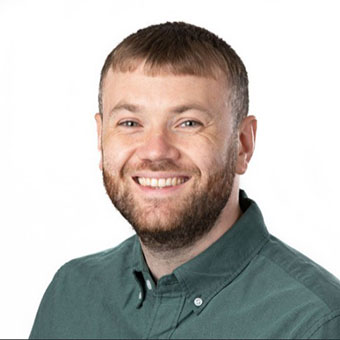
Dave Eisenberg is the integrated marketing and content strategy manager with Brandeis University's Institutional Advancement team. Prior to joining Brandeis, he worked as a content specialist at Perkins School for the Blind, and before that, as a journalist. Outside of work, he enjoys playing guitar and is an avid runner.







